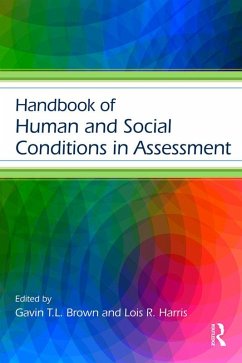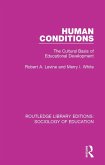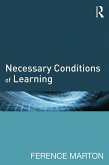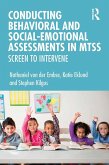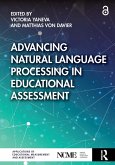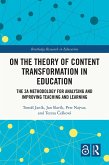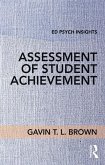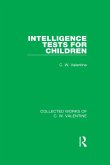120,95 €
120,95 €
inkl. MwSt.
Sofort per Download lieferbar

60 °P sammeln
120,95 €
Als Download kaufen

120,95 €
inkl. MwSt.
Sofort per Download lieferbar

60 °P sammeln
Jetzt verschenken
Alle Infos zum eBook verschenken
120,95 €
inkl. MwSt.
Sofort per Download lieferbar
Alle Infos zum eBook verschenken

60 °P sammeln
- Format: PDF
- Merkliste
- Auf die Merkliste
- Bewerten Bewerten
- Teilen
- Produkt teilen
- Produkterinnerung
- Produkterinnerung

Bitte loggen Sie sich zunächst in Ihr Kundenkonto ein oder registrieren Sie sich bei
bücher.de, um das eBook-Abo tolino select nutzen zu können.
Hier können Sie sich einloggen
Hier können Sie sich einloggen
Sie sind bereits eingeloggt. Klicken Sie auf 2. tolino select Abo, um fortzufahren.

Bitte loggen Sie sich zunächst in Ihr Kundenkonto ein oder registrieren Sie sich bei bücher.de, um das eBook-Abo tolino select nutzen zu können.
This book will be an unprecedented resource for researchers and scholars interested in the human factors that affect assessment and how they impact teaching, learning, and assessment itself.
- Geräte: PC
- mit Kopierschutz
- eBook Hilfe
- Größe: 4.47MB
Andere Kunden interessierten sich auch für
![Human Conditions (eBook, PDF) Human Conditions (eBook, PDF)]() Robert A LevineHuman Conditions (eBook, PDF)33,95 €
Robert A LevineHuman Conditions (eBook, PDF)33,95 €![Necessary Conditions of Learning (eBook, PDF) Necessary Conditions of Learning (eBook, PDF)]() Ference MartonNecessary Conditions of Learning (eBook, PDF)55,95 €
Ference MartonNecessary Conditions of Learning (eBook, PDF)55,95 €![Conducting Behavioral and Social-Emotional Assessments in MTSS (eBook, PDF) Conducting Behavioral and Social-Emotional Assessments in MTSS (eBook, PDF)]() Nathaniel von der EmbseConducting Behavioral and Social-Emotional Assessments in MTSS (eBook, PDF)36,95 €
Nathaniel von der EmbseConducting Behavioral and Social-Emotional Assessments in MTSS (eBook, PDF)36,95 €![Advancing Natural Language Processing in Educational Assessment (eBook, PDF) Advancing Natural Language Processing in Educational Assessment (eBook, PDF)]() Advancing Natural Language Processing in Educational Assessment (eBook, PDF)0,99 €
Advancing Natural Language Processing in Educational Assessment (eBook, PDF)0,99 €![On the Theory of Content Transformation in Education (eBook, PDF) On the Theory of Content Transformation in Education (eBook, PDF)]() Tomás JaníkOn the Theory of Content Transformation in Education (eBook, PDF)42,95 €
Tomás JaníkOn the Theory of Content Transformation in Education (eBook, PDF)42,95 €![Assessment of Student Achievement (eBook, PDF) Assessment of Student Achievement (eBook, PDF)]() Gavin T. L. BrownAssessment of Student Achievement (eBook, PDF)33,95 €
Gavin T. L. BrownAssessment of Student Achievement (eBook, PDF)33,95 €![Intelligence Tests for Children (eBook, PDF) Intelligence Tests for Children (eBook, PDF)]() C. W. ValentineIntelligence Tests for Children (eBook, PDF)44,95 €
C. W. ValentineIntelligence Tests for Children (eBook, PDF)44,95 €-
-
-
This book will be an unprecedented resource for researchers and scholars interested in the human factors that affect assessment and how they impact teaching, learning, and assessment itself.
Dieser Download kann aus rechtlichen Gründen nur mit Rechnungsadresse in A, B, BG, CY, CZ, D, DK, EW, E, FIN, F, GR, HR, H, IRL, I, LT, L, LR, M, NL, PL, P, R, S, SLO, SK ausgeliefert werden.
Produktdetails
- Produktdetails
- Verlag: Taylor & Francis
- Seitenzahl: 586
- Erscheinungstermin: 23. Juni 2016
- Englisch
- ISBN-13: 9781317608189
- Artikelnr.: 45352779
- Verlag: Taylor & Francis
- Seitenzahl: 586
- Erscheinungstermin: 23. Juni 2016
- Englisch
- ISBN-13: 9781317608189
- Artikelnr.: 45352779
- Herstellerkennzeichnung Die Herstellerinformationen sind derzeit nicht verfügbar.
Gavin T. L. Brown is Professor and Director of the Quantitative Data Analysis and Research Unit in the Faculty of Education and Social Work at the University of Auckland, New Zealand.
Lois R. Harris
is a Senior Post-doctoral Research Fellow within the School of Education and the Arts at Central Queensland University, Australia.
Lois R. Harris
is a Senior Post-doctoral Research Fellow within the School of Education and the Arts at Central Queensland University, Australia.
Contents
Foreword
John Hattie
Acknowledgements
1. Volume Introduction: The human and social experience of assessment:
Valuing the person and context
Lois R. Harris and Gavin T. L. Brown
Section 1: Teachers and Assessment
2. Teachers' Perceptions about Assessment: Competing Narratives
Sarah Bonner
3. Accountability assessment's effects on teachers and schools
Sharon L. Nichols and Lois R. Harris
4. Moving from student to teacher: Changing perspectives about
assessment through teacher education
Mary Hill and Gayle Eyers
5. In-service Teacher Professional Learning: Use of assessment in
data-based decision-making
Mei Kuin Lai and Kim Schildkamp
6. Teachers and Assessment: Enhancing Assessment Capability
Judy M. Parr and Helen S. Timperley
Section 2: Students and Assessment
7. Emotions that Matter to Achievement: Student Feelings about
Assessment
Elisabeth Vogl and Reinhard Pekrun
8. Students' Perceptions of Novel forms of Assessment
Katrien Struyven and Joana Devesa
9. Student participation in assessment: Does it influence
self-regulation?
Daniel L. Dinsmore and Hope E. Wilson
10. Toward a Model of Student Response to Feedback
Anastasiya A. Lipnevich, David A. G. Berg and Jeffrey K. Smith
11. Student dishonesty in the face of assessment: Who, why, and what we
can do about it
Tamera B. Murdock, Jason M. Stephens, and Morgan M. Grotewiel
12. The Validity of Assessment When Students Don't Give Good Effort
Steve L. Wise and Lisa F. Smith
13. Student Perceptions of Assessment
James H. McMillan
Section 3: Classroom Conditions
14. Is it safe? Social, interpersonal, and human effects of peer
assessment: A review and future directions
Ernesto Panadero
15. Privacy in Classroom Assessment
Robin D. Tierney and Martha J. Koch
16. Differentiated Instruction and Assessment: An Approach to Classroom
Assessment in Conditions of Student Diversity
Tonya R. Moon
17. Assessment of collaborative learning
Jan-Willem Strijbos
18. Student Self-Assessment in the Classroom
Heidi L. Andrade and Gavin T. L. Brown
19. Classroom processes that support effective assessment
Bronwen Cowie and Christine Harrison
20. Building Assessments That Work in Classrooms
Susan M. Brookhart
Section: Cultural Contexts
21. The Impact of International Testing Projects on Policy and Practice
Janna Teltemann and Eckhard Klieme
22. Globalization of the Anglo-American approach to top-down, test-based
educational accountability
Bob Lingard and Steven Lewis
23. Exploring the Influence of Culture on Assessment: The Case of
Teachers' Conceptions of Assessment in Confucian-Heritage Cultures
Kerry J. Kennedy
24. Educational assessment in Muslim countries: Values, polices, and
practices
Atta Gebril
25. Assessment in Education in Multicultural Populations
Fons J. R. van de Vijver
26. Public perceptions about assessment in education
Chad W. Buckendahl
27. Computerising assessment: Impacts on education stakeholders
Irvin R. Katz and Joanna S. Gorin
28. Assessment and Sociocultural Context: A Bidirectional Relationship
Kadriye Ercikan and Guillermo Solano-Flores
29. The future of assessment as a human and social endeavour
Gavin T. L. Brown and Lois R. Harris
Contributing Authors
Index
Foreword
John Hattie
Acknowledgements
1. Volume Introduction: The human and social experience of assessment:
Valuing the person and context
Lois R. Harris and Gavin T. L. Brown
Section 1: Teachers and Assessment
2. Teachers' Perceptions about Assessment: Competing Narratives
Sarah Bonner
3. Accountability assessment's effects on teachers and schools
Sharon L. Nichols and Lois R. Harris
4. Moving from student to teacher: Changing perspectives about
assessment through teacher education
Mary Hill and Gayle Eyers
5. In-service Teacher Professional Learning: Use of assessment in
data-based decision-making
Mei Kuin Lai and Kim Schildkamp
6. Teachers and Assessment: Enhancing Assessment Capability
Judy M. Parr and Helen S. Timperley
Section 2: Students and Assessment
7. Emotions that Matter to Achievement: Student Feelings about
Assessment
Elisabeth Vogl and Reinhard Pekrun
8. Students' Perceptions of Novel forms of Assessment
Katrien Struyven and Joana Devesa
9. Student participation in assessment: Does it influence
self-regulation?
Daniel L. Dinsmore and Hope E. Wilson
10. Toward a Model of Student Response to Feedback
Anastasiya A. Lipnevich, David A. G. Berg and Jeffrey K. Smith
11. Student dishonesty in the face of assessment: Who, why, and what we
can do about it
Tamera B. Murdock, Jason M. Stephens, and Morgan M. Grotewiel
12. The Validity of Assessment When Students Don't Give Good Effort
Steve L. Wise and Lisa F. Smith
13. Student Perceptions of Assessment
James H. McMillan
Section 3: Classroom Conditions
14. Is it safe? Social, interpersonal, and human effects of peer
assessment: A review and future directions
Ernesto Panadero
15. Privacy in Classroom Assessment
Robin D. Tierney and Martha J. Koch
16. Differentiated Instruction and Assessment: An Approach to Classroom
Assessment in Conditions of Student Diversity
Tonya R. Moon
17. Assessment of collaborative learning
Jan-Willem Strijbos
18. Student Self-Assessment in the Classroom
Heidi L. Andrade and Gavin T. L. Brown
19. Classroom processes that support effective assessment
Bronwen Cowie and Christine Harrison
20. Building Assessments That Work in Classrooms
Susan M. Brookhart
Section: Cultural Contexts
21. The Impact of International Testing Projects on Policy and Practice
Janna Teltemann and Eckhard Klieme
22. Globalization of the Anglo-American approach to top-down, test-based
educational accountability
Bob Lingard and Steven Lewis
23. Exploring the Influence of Culture on Assessment: The Case of
Teachers' Conceptions of Assessment in Confucian-Heritage Cultures
Kerry J. Kennedy
24. Educational assessment in Muslim countries: Values, polices, and
practices
Atta Gebril
25. Assessment in Education in Multicultural Populations
Fons J. R. van de Vijver
26. Public perceptions about assessment in education
Chad W. Buckendahl
27. Computerising assessment: Impacts on education stakeholders
Irvin R. Katz and Joanna S. Gorin
28. Assessment and Sociocultural Context: A Bidirectional Relationship
Kadriye Ercikan and Guillermo Solano-Flores
29. The future of assessment as a human and social endeavour
Gavin T. L. Brown and Lois R. Harris
Contributing Authors
Index
Contents
Foreword
John Hattie
Acknowledgements
1. Volume Introduction: The human and social experience of assessment:
Valuing the person and context
Lois R. Harris and Gavin T. L. Brown
Section 1: Teachers and Assessment
2. Teachers' Perceptions about Assessment: Competing Narratives
Sarah Bonner
3. Accountability assessment's effects on teachers and schools
Sharon L. Nichols and Lois R. Harris
4. Moving from student to teacher: Changing perspectives about
assessment through teacher education
Mary Hill and Gayle Eyers
5. In-service Teacher Professional Learning: Use of assessment in
data-based decision-making
Mei Kuin Lai and Kim Schildkamp
6. Teachers and Assessment: Enhancing Assessment Capability
Judy M. Parr and Helen S. Timperley
Section 2: Students and Assessment
7. Emotions that Matter to Achievement: Student Feelings about
Assessment
Elisabeth Vogl and Reinhard Pekrun
8. Students' Perceptions of Novel forms of Assessment
Katrien Struyven and Joana Devesa
9. Student participation in assessment: Does it influence
self-regulation?
Daniel L. Dinsmore and Hope E. Wilson
10. Toward a Model of Student Response to Feedback
Anastasiya A. Lipnevich, David A. G. Berg and Jeffrey K. Smith
11. Student dishonesty in the face of assessment: Who, why, and what we
can do about it
Tamera B. Murdock, Jason M. Stephens, and Morgan M. Grotewiel
12. The Validity of Assessment When Students Don't Give Good Effort
Steve L. Wise and Lisa F. Smith
13. Student Perceptions of Assessment
James H. McMillan
Section 3: Classroom Conditions
14. Is it safe? Social, interpersonal, and human effects of peer
assessment: A review and future directions
Ernesto Panadero
15. Privacy in Classroom Assessment
Robin D. Tierney and Martha J. Koch
16. Differentiated Instruction and Assessment: An Approach to Classroom
Assessment in Conditions of Student Diversity
Tonya R. Moon
17. Assessment of collaborative learning
Jan-Willem Strijbos
18. Student Self-Assessment in the Classroom
Heidi L. Andrade and Gavin T. L. Brown
19. Classroom processes that support effective assessment
Bronwen Cowie and Christine Harrison
20. Building Assessments That Work in Classrooms
Susan M. Brookhart
Section: Cultural Contexts
21. The Impact of International Testing Projects on Policy and Practice
Janna Teltemann and Eckhard Klieme
22. Globalization of the Anglo-American approach to top-down, test-based
educational accountability
Bob Lingard and Steven Lewis
23. Exploring the Influence of Culture on Assessment: The Case of
Teachers' Conceptions of Assessment in Confucian-Heritage Cultures
Kerry J. Kennedy
24. Educational assessment in Muslim countries: Values, polices, and
practices
Atta Gebril
25. Assessment in Education in Multicultural Populations
Fons J. R. van de Vijver
26. Public perceptions about assessment in education
Chad W. Buckendahl
27. Computerising assessment: Impacts on education stakeholders
Irvin R. Katz and Joanna S. Gorin
28. Assessment and Sociocultural Context: A Bidirectional Relationship
Kadriye Ercikan and Guillermo Solano-Flores
29. The future of assessment as a human and social endeavour
Gavin T. L. Brown and Lois R. Harris
Contributing Authors
Index
Foreword
John Hattie
Acknowledgements
1. Volume Introduction: The human and social experience of assessment:
Valuing the person and context
Lois R. Harris and Gavin T. L. Brown
Section 1: Teachers and Assessment
2. Teachers' Perceptions about Assessment: Competing Narratives
Sarah Bonner
3. Accountability assessment's effects on teachers and schools
Sharon L. Nichols and Lois R. Harris
4. Moving from student to teacher: Changing perspectives about
assessment through teacher education
Mary Hill and Gayle Eyers
5. In-service Teacher Professional Learning: Use of assessment in
data-based decision-making
Mei Kuin Lai and Kim Schildkamp
6. Teachers and Assessment: Enhancing Assessment Capability
Judy M. Parr and Helen S. Timperley
Section 2: Students and Assessment
7. Emotions that Matter to Achievement: Student Feelings about
Assessment
Elisabeth Vogl and Reinhard Pekrun
8. Students' Perceptions of Novel forms of Assessment
Katrien Struyven and Joana Devesa
9. Student participation in assessment: Does it influence
self-regulation?
Daniel L. Dinsmore and Hope E. Wilson
10. Toward a Model of Student Response to Feedback
Anastasiya A. Lipnevich, David A. G. Berg and Jeffrey K. Smith
11. Student dishonesty in the face of assessment: Who, why, and what we
can do about it
Tamera B. Murdock, Jason M. Stephens, and Morgan M. Grotewiel
12. The Validity of Assessment When Students Don't Give Good Effort
Steve L. Wise and Lisa F. Smith
13. Student Perceptions of Assessment
James H. McMillan
Section 3: Classroom Conditions
14. Is it safe? Social, interpersonal, and human effects of peer
assessment: A review and future directions
Ernesto Panadero
15. Privacy in Classroom Assessment
Robin D. Tierney and Martha J. Koch
16. Differentiated Instruction and Assessment: An Approach to Classroom
Assessment in Conditions of Student Diversity
Tonya R. Moon
17. Assessment of collaborative learning
Jan-Willem Strijbos
18. Student Self-Assessment in the Classroom
Heidi L. Andrade and Gavin T. L. Brown
19. Classroom processes that support effective assessment
Bronwen Cowie and Christine Harrison
20. Building Assessments That Work in Classrooms
Susan M. Brookhart
Section: Cultural Contexts
21. The Impact of International Testing Projects on Policy and Practice
Janna Teltemann and Eckhard Klieme
22. Globalization of the Anglo-American approach to top-down, test-based
educational accountability
Bob Lingard and Steven Lewis
23. Exploring the Influence of Culture on Assessment: The Case of
Teachers' Conceptions of Assessment in Confucian-Heritage Cultures
Kerry J. Kennedy
24. Educational assessment in Muslim countries: Values, polices, and
practices
Atta Gebril
25. Assessment in Education in Multicultural Populations
Fons J. R. van de Vijver
26. Public perceptions about assessment in education
Chad W. Buckendahl
27. Computerising assessment: Impacts on education stakeholders
Irvin R. Katz and Joanna S. Gorin
28. Assessment and Sociocultural Context: A Bidirectional Relationship
Kadriye Ercikan and Guillermo Solano-Flores
29. The future of assessment as a human and social endeavour
Gavin T. L. Brown and Lois R. Harris
Contributing Authors
Index
